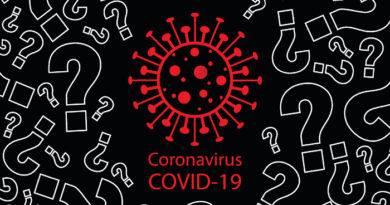Natural Immunity from COVID Infection Could be Stronger than Vaccination in Protecting Against Delta Variant

Natural immunity from previous COVID-19 infection may offer stronger protection against the Indian ‘Delta’ variant than immunity from full vaccination, a new study suggests.
Researchers compared people who had received two doses of the Pfizer-BioNTech COVID-19 vaccine to unvaccinated individuals who had recovered from the virus.
They found that participants with natural immunity were up to 13 times less likely to contract Covid than those who were given two jabs.
The team, from Maccabi Healthcare and Tel Aviv University note that their study – which has not yet been peer-reviewed – has many limitations including the more highly transmissible Delta variant being dominant at the time and participants not being required to be tested.
The study looks at breakthrough infections and does not discourage vaccination with a recent report from the Centers for Disease Control and Prevention (CDC) finding unvaccinated people still have five times as many COVID-19 infections and 29 times as many hospitalizations as those who’ve had their shots.

Participants who were double jabbed were 5.96 times more likely to be infected and 7.13 times more likely to experience symptoms, a new study found

After three months, risk of infection was 13.06 times higher among immunized individuals and they were 27 times more likely to experience symptoms
For the study, published on pre-print server medRxiv.org, the team looked at more than 800,000 people split into three groups.
This included people who received both doses of the Pfizer vaccine and never had Covid, unvaccinated people who previously been infected, and people had the virus and has also received a single dose of the vaccine.
The study was conducted after the Delta variant became dominant in Israel, which has been shown to more easily evade vaccines than older strains.
Researchers found that fully vaccinated but people were much more likely to have a ‘breakthrough’ Covid infection than people with natural immunity for the disease.
Overall participants who were double jabbed were 5.96 times more likely to be infected and 7.13 times more likely to experience symptoms including cough, fever and shortness of breath.
They also looked at the likelihood of vaccination after three months.
Researchers found, in this instance, likelihood of infections at 13.06 times higher among immunized individuals and they were 27 times more likely to experience symptoms.
People who had recovered from the virus and had been vaccinated were even less likely to have a breakthrough infection.
The team notes that there are several limitations. Firstly, the study only examines protection offered by the Pfizer vaccines and does not address other approved vaccines or extra protection that a third dose provides.
Secondly, while the study controlled for factors such as age, sex, and region of residence, there might be differences in behaviors of the groups – such as social distancing and mask wearing – that weren’t accounted.


Dr Andrew Croxford, an immunologist from the UK, also points out that someone who previously tested positive for COVID-19 is not likely to get re-tested for reinfection.
‘If you’ve tested positive and isolated for weeks with significant disruption, how likely are you to get tested again as opposed to thinking “I’ve already had it so it’s surely something else”?’ he tweeted.
‘Are people who decline vaccination, or people with previous infection, less likely to get tested?’
However, if the findings are confirmed by peer review, it could have implications for
‘This study demonstrated that natural immunity confers longer lasting and stronger protection against infection, symptomatic disease and hospitalization caused by the Delta variant of SARS-CoV-2, ‘ the authors wrote.
‘Individuals who were both previously infected with SARS-CoV-2 and given a single dose of the vaccine gained additional protection against the Delta variant.’
*
Note to readers: Please click the share buttons above or below. Follow us on Instagram, @crg_globalresearch. Forward this article to your email lists. Crosspost on your blog site, internet forums. etc.


